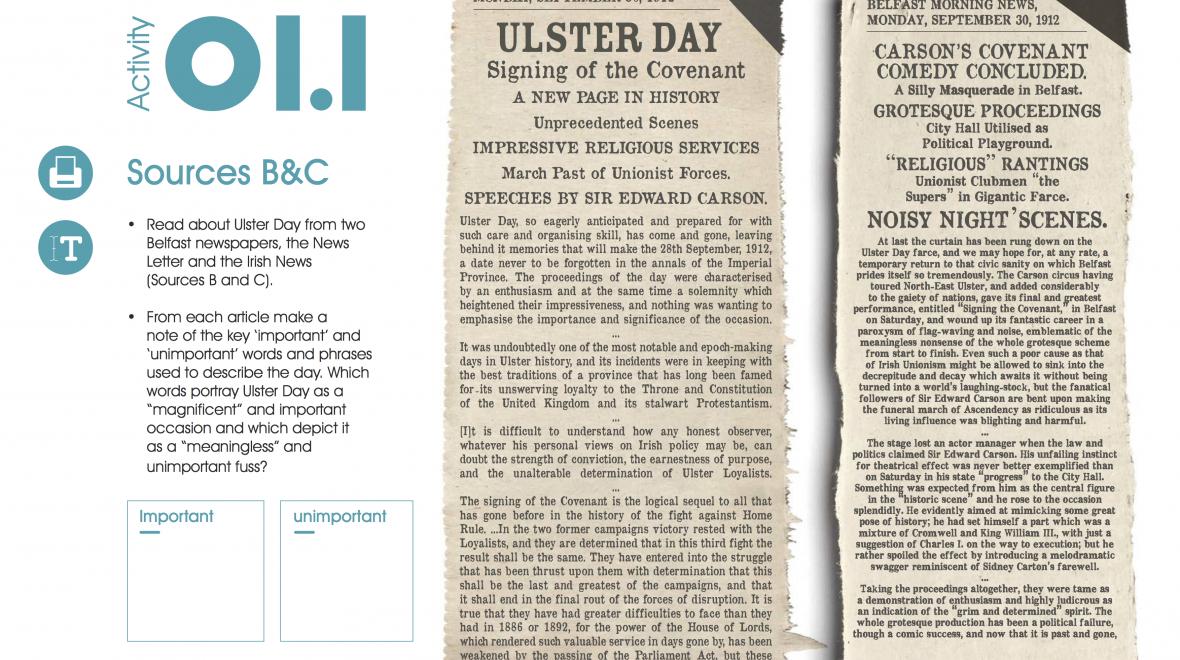A Decade of Anniversaries Schools Resource

The project was funded by the CRC to produce a resource to encourage secondary school students (and others) to address the sensitive history of the 1912-22 decade in ways which help both to better understand the events in their historical context and to engage with their centenary commemoration in the present. While directed at formal education, the material should also be valuable to educators in the community.
The resource was written by Alan McCully (School of Education, Ulster University) and Matthew Jess (now of Belfast High School) with Matt responsible for researching and locating the material.
The starting point was the application of the five principles identified by CRC at the outset of the decade. These were mapped on to eight pointers which had emerged from research into teaching contested history in NI (Barton and McCully 2005; 2010; 2012), thus providing a framework for the resource’s design:
- Challenge entrenched and unsubstantiated positions, “myth-bust” and expose the abuse of history
- Recognise complexity, initiate informed individual interpretations and foster debate
- Enable students to engage in meta-cognition whereby they can be aware how their own backgrounds and allegiances might come to influence the way they interpret the past
- Involve students in a constant dialogue between the events of the past and the present
- Engage students in an explicit exploration of the relationship between national identity(ies) and history
- Help students understand the recent, violent past including critically examining personal experiences of those events
- Provide an informed context for contemporary dialogue
- Articulate history’s place in a connected curriculum and its relationship with citizenship education.
What worked well and what, if anything, didn't?
The resource takes West Belfast as a case-study, modeling an approach that could be replicated for other areas. It comprises of five modules: West Belfast 1912-14: The Ulster Crisis; World War One; Post War Troubles; Mythbusters; and Commemoration and Remembering.
In following the framework, in addition to taking an evidence-based approach to investigating the past, students are encouraged to examine how communities reacted at the time and how community memory has developed over time. They are asked to view current commemorations critically and to think creatively as to how contemporary remembering might better contribute to the common good.
Within the modules there is material relating to events rarely if ever covered in schools. For example, in Post War Troubles, as well as an investigation of tit-for-tat sectarian killings of the period there is a detailed enquiry into the issue of collusion between Crown forces and paramilitaries, including the alleged activities of the Nixon Gang.
Further Information
Dr Alan McCully: aw.McCully@ulster.ac.uk or Matthew Jess: matthewdjess@gmail.com,


